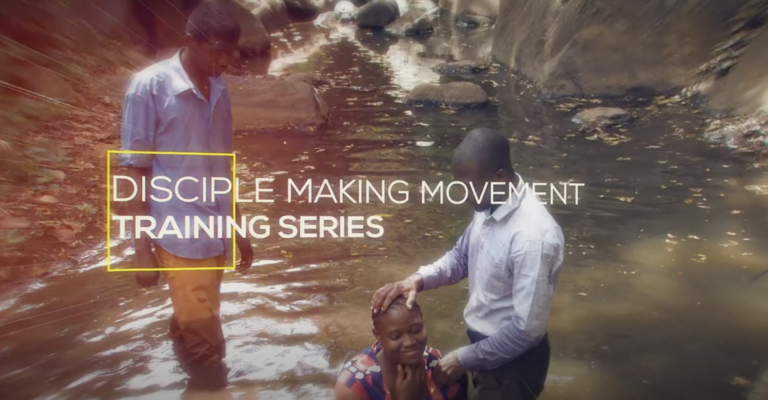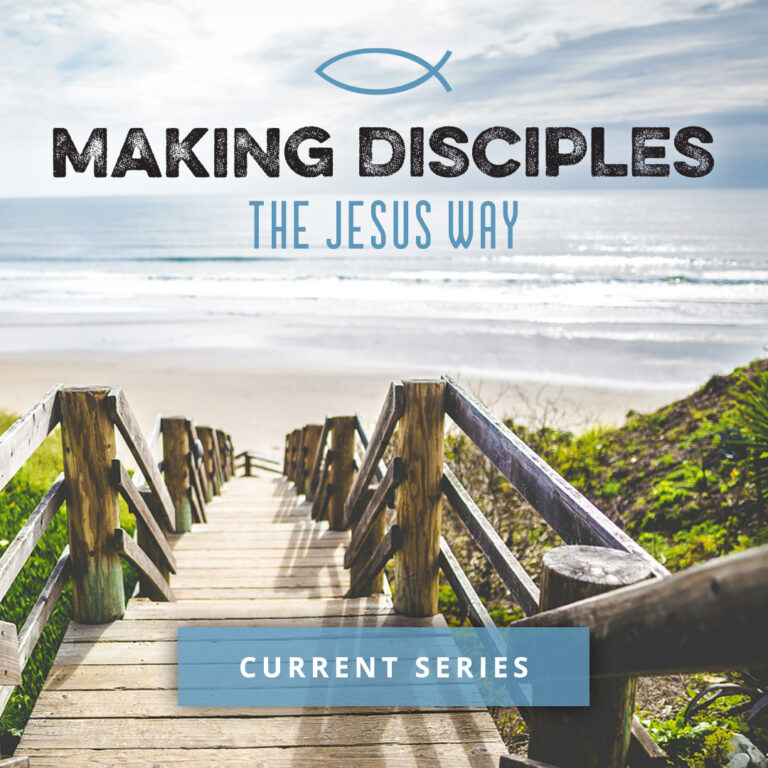
Discovering DMM: Raising the Sails to Make Disciples
Throughout his time on the earth, Jesus called his followers to multiply. To make disciples that make disciples. To be his witnesses in Jerusalem, all of Judea and Samaria, and to the ends of the earth. In brief, within every new disciple was the seed of multiplication. This generational strategy of Jesus activates every one of his followers on a mission to “go and tell”, rather than a strategy to invite faith outsiders to “come and see”.
Ultimately, as Jesus described the “one grain” of his own death that would result in a harvest of seeds, the power of multiplication requires sacrifice and personal surrender.
“I tell you the truth, unless a kernel of wheat is planted in the soil and dies, it remains alone. But its death will produce many new kernels – a plentiful harvest of new lives.”
-John 12:24 NLT
(1) What is a dmm: Sunday, september 12th
“DMM” stands for Disciple Making Movement. This acronym is also related to “CPM” which stands for Church Planting Movement. Disciple Making Movements are one of the strategies that can result in CPMs, in which at least 100 churches are planted with four or more generations of replication.
Success to those executing a DMM strategy can be summed up in two words – generational discipleship – a process of making disciples who then learn to obey Jesus commands and quickly make other disciples. This generational discipleship making results in many new churches being planted. In fact, there are currently over 1,300 documented DMMs in the world today with an average size of over 1,000 believers per DMM. It’s interesting to note that just the average movement is actually larger than our largest American church.
“DMM is a strategy that has six key characteristics: God ordained, Spirit dependent, Bible centered, obedience focused, discovery based and disciple driven.” -Roy Moran, “Spent Matches”
(2) abandoning traditions: Sunday, september 19th
Traditions can be religious, organizational or cultural. They are “how” we do things, and in American Christianity we have been married to an evangelical church model that was birthed 500 years ago in the Reformation. The Reformation was a turning point in the history of Christianity, a real “game changer” in how we do church, but as it was unfolding it was not a clear, smooth transition.
There is another “Reformation” underway in the evangelical church today as the Holy Spirit re-energizes the type of viral movements that ‘turned the word upside down’ in the Book of Acts. Movements have lots of different dimensions and various expressions but one common denominator to look for is ordinary people becoming obedient followers of Jesus and challenging their friends and family to do the same.
“So the Pharisees and teachers of the law asked Jesus, ‘Why don’t your disciples live according to the tradition of the elders …?’” -Mark 7:5 NIV
Abandoning Traditions Message Notes
(3) The power of discovering: Sunday, september 26th
People are more committed to truths they discover for themselves than those they learn from other people. The discovery method that is employed by DMM, to focus on God’s Word in what is called a Discovery Bible Study (DBS), uses questions about a passage in Scripture that each person is challenged to “discover” and answer for themselves. The process of discovery in a DBS relies on the Holy Spirit as the teacher who instructs each person in the DBS on what God wants them to learn.
The power of discovery is that God himself provides the answers to those who seek him out. This is exactly what Jesus promised would happen in John 6 when he said, that we will all be “taught by God” as we listen to and learn from the Father directly.
”As it is writtten in the Scriptures, ’They will all be taught by God.’ Everyone who listens to the Father and learns from him comes to me.” -John 6:45 NLT
The Power of Discovering Message Notes
(4) a call to prayer: Sunday, october 3rd
When we are asking God for a movement (DMM), we are essentially asking him to do again what he did in the early church. In the Book of Acts we read about a great movement of God that started in Jerusalem and then swept across the entire Roman Empire leading millions to Jesus in a relatively short period of time. If we want to see those results that the early church saw, then we need to do what they did. The one thing we see that these early followers were constantly doing was praying.
The starting point for all movements is a call to multiply extraordinary prayer, in which we take our current “ordinary” prayer habits to the next level and then challenge others to do the same. This call to prayer is the lifeblood of DMMs, and if we are going to see the same kind of movements happen in America, as we saw in the early church and now see in DMMs around the globe, we need to have a serious commitment to prayer.
“The harvest is great, but the workers are few. So pray to the Lord who is charge of the harvest; ask him to send more workers into his fields.” -Matthew 9:37-38 NLT
A Call to Prayer Message Notes
(5) the great commandment: Sunday, october 10th
When asked by the teachers of the law what the greatest commandment was, Jesus replied by quoting from Deuteronomy 6:4-5 and Leviticus 19:18. He said to love God and to love your neighbor. This passage in Deuteronomy is called the “Shemah” and it means that we are to demonstrate our love for God by hearing and obeying him. In other words, God’s love language is obedience, and the way he has challenged us to demonstrate our love is by “loving our neighbor as ourselves” in a Shemah lifestyle.
A Shemah lifestyle consists of both Shemah actions we take to serve other people and Shemah statements we make to provide the reason behind our actions. Shemah living is when we “live our faith out loud.” When people observe a follower of Jesus living a Shemah lifestyle, they are often interested in learning more about our faith. This is the essential first step in reaching those who are lost in relationship to God.
“Of all the commandments, which is the most important?” -Mark 12:28b NLT
The Great Commandment Message Notes
(6) the great commission: Sunday, october 17th
Jesus invested in and challenged his first century followers for three years as they watched, listened and interacted with him. But despite their still deficient ability to understand and trust him, he commissioned them to go to all people groups in the then known world. Jesus’ plan to deploy these disciples was not gauged on their knowledge, transformed state, or ability to trust him. It was gauged on the authority from one end of the universe to another that his Father had given him as a result of his obedience on the cross and his resurrection.
Jesus’ intent in making this sending command to “as you go make disciples” was not to form a special group of people we call missionaries to take his message across the ocean. Rather, his intent was to embed this mission in the lives of everyone who would follow him.
“Now wherever you go, make disciples …” -Matthew 28:19a TPT
The Great Commission Message Notes
(7) do what jesus did: Sunday, october 24th
Jesus provided his first century followers with a specific strategy when he sent them out two by two, to every town and place. First, pray and ask God to show you the place he has prepared for you to go to. Second, once you know the place, begin to pray for that place. Third, begin to live a Shemah lifestyle by meeting the needs in that area and sharing about Jesus while doing so. Fourth, begin to look for the “person of peace” who God has already been preparing to receive you and the message of Jesus. Fifth, invite them to gather with their family and/or friends to discover who God is by “listening to the Father and learning from him” in Scripture passages. Sixth, as this Discovery Group obeys and shares what they learn from God’s Word they are saved and baptized and begin to function as a new church.
Then the process of making disciples and planting churches repeats itself again. “Jesus sent his twelve harvest hands out with this charge: … Go to the lost, confused people right here in the neighborhood.” -Matthew 10:5-6 MSG
Do What Jesus Did Message Notes
(8) equipping everyday people: Sunday, october 31st
Jesus used ordinary nonreligious people who were fisherman, tax collectors and tent makers to become the catalysts of his original disciple making movement. Perhaps that explains one of the reasons why the current evangelical church in America is struggling to survive. We have lost the original DNA that empowered every member, regardless of background, as a disciple maker. We have left Jesus’ assignment to “go” to the professional clergy, and lost the relationships and social networks of everyday believers.
The original band of ordinary people who followed Jesus were “uneducated and untrained” but their boldness to proclaim Jesus, caused the crowds to marvel. If you are an ordinary believer with no formal Bible or seminary training, you should ask yourself, why not me? If you are a pastor, perhaps you should look out at your congregation and ask, why not them?
”When they saw the boldness of Peter and John and realized they were unschooled, ordinary men, they were astonished and they took note that these were ordinary men.”
-Acts 4:13 NIV
Equipping Everyday People Message Notes
(9) what is church: Sunday, november 7th
The first fellowship of believers is described in the second chapter of the Book of Acts. It states that these first century followers gathered together in homes on a regular basis, shared meals and communion together, prayed, worshipped God and enjoyed the favor of outsiders while they grew in numbers daily. That picture stands in stark contrast with what we practice and experience in the evangelical church today.
“Their hearts were mutually linked to one another, sharing communion (breaking bread) and coming together regularly for prayer.” -Acts 2:42b NIV



